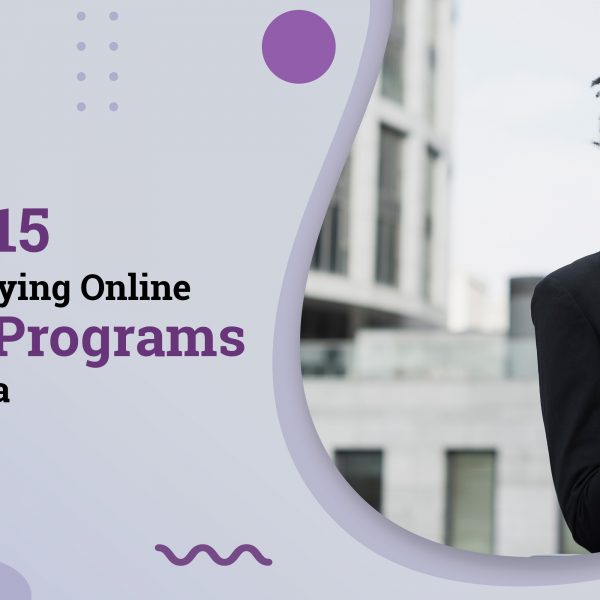Blog Summary
A PhD requires distinct skill sets from a master’s and a bachelor’s. The biggest obstacle for PhD candidates is choosing a project subject or problem statement. This blog article aims to inform readers about how to select and complete their PhD projects. Your inner motivation and areas of interest should be the top considerations while selecting your specialization. Never start a PhD program without getting clarification on the research labs you should choose. For application alerts, while enrolled in your master’s program, register with PhD Portals. Select an interest-provoking subject, then read everything there is to know about it. A successful thesis requires adhering to the “Write, Rewrite, and Write” cycle.
Pursuing a PhD, unlike your master’s or bachelor’s program, demands altogether different skill sets. You have a fixed set of subjects with some open elective and core-elective to study in those programs. But in a PhD program, you are aware of your stream of study like computer science, management, finance, humanities, etc.
But the PhD project topics on which you carry out research are wide open. You are supposed to narrow down to a particular thesis topic idea or field of study. Selecting a PhD project topic or problem statement is the biggest challenge for PhD students. This blog post attempts to educate scholars on selecting a PhD project of their choice and completing it.
How Do I Choose a PhD Project?
Choosing a PhD project topic is the primary work in pursuing a PhD program. It is not like choosing an undergraduate or postgraduate program. It demands patience. So, take your time.
Next, you should be in a position to decide what type of PhD project you want to pursue. Broadly there are three types of PhD projects:
- Advertised PhD projects
- Self-proposed PhD projects
- Professional Doctorates
The Advertised Projects are common in Science, Technology, Engineering, and Medicine (STEM). Research groups and Well-established laboratories offer these programs.
The Self-proposed projects are common in the Humanities and Arts arena. Here, you are free to choose a thesis topic as long as it falls in the purview of a research topic.
Professional Doctorates in vocational subjects like Business and Management awarded to practitioners are not academic qualifications.
What Makes a good PhD Project?
A PhD project should, first of all, have a clear goal. So, it starts with a proposal. A PhD proposal is a clear and concise document illustrating the problem statement and the goals of your work. It should also highlight why it is worth pursuing?
A typical PhD project involves Five steps:
- Identifying a problem statement
- Carrying out a comprehensive literature review
- Conducting Original Research and finding out results
- Producing a Thesis that documents your results
- Writing the thesis and taking up Viva-Voce
Tips for choosing a PhD project and topics
Here you have two sets of Tips:
- Tips to Apply for a PhD project and choosing a PhD project topic
- Tips to Write your PhD Thesis
Tips to Apply for a PhD project
1. Be Aware of Your Niche
Just because you are a computer science postgraduate and AI or Data Science is the trend; You needn’t select these areas. What matters is your interest and inner drive that should be the priority in choosing your niche.
2. Your Comfort Level to Relocate to Another City
Once you have identified your niche and the University/Research Labs, you may have to relocate to a new city. Make up your mind to relocate and also be decisive in making your choice.
3. Identify the Departments and Research Labs Succinctly
You are supposed to conduct a lot of research before boiling it down to a particular Department or University. This is a necessity as it is crucial to identify your core interests and ideas.
4. Obtain Clarity from Your Research Supervisor
Never dive into a PhD program without seeking clarity about the Research labs you are supposed to join. If it is a funded project, get clarification about all facts that are not obvious. Have one to one discussion with your Research Supervisor over Skype or any messenger to seek clarity regarding questions like,
- How many people work in the lab?
- What are their designations?
- Are you supposed to collaborate with any of them?
5. Register with PhD Portals to Get Application Alerts
During your Master’s Program, register with online portals that provide information on PhD programs offered by various Labs and Universities. This helps you to be informed about itineraries of multiple institutes.
6. Seek Seniors and Teachers Help
Ignorance is the biggest culprit that sinks your career ship. Regardless of how small your doubt is, get it clarified from your professors and seniors. Discuss issues like how to formulate an email, cover letter, resume, and other application procedures.
7. Understand the Team Well
It is not only the project that should create enthusiasm; it is also the team you will be working with. The team is vital to complete a project. Before diving into a project, try to understand whether you can get along with your teammates.
8. Different Types of Funding Exists
When you apply for funded projects, you often come across various types. Some are not funded, while some are competition-funded also. Your enthusiasm for getting into the project plays a vital role in the supervisors picking you in competitive funding. So, Love your work to the core.
9. Always Apply for More than One University/Institute
Prepare as many applications as possible and shoot them to different institutes. This process provides a wide array of experience in how to draft an application and approach the institutes. Such skills will help you in the long term.
10. Failure is the Stepping Stone to Success
You might fail once or twice in getting shortlisted or fail to perform in the interview. The number of interviews you have faced will help nurture your interpersonal skills.
Below are the general tips any PhD scholar should follow to be successful.
- While choosing a PhD project topic most crucial parameter is to rely on a topic that is interesting for you.
- Thoroughly read everything about the topic.
- Find a theoretical basis to support your idea.
- Be prepared to shift gears as the research progresses and your presumptions about the outcomes change.
- Be open to taking inputs from others to fine-tune your views.
- Formulate a committee of researchers,
- Be diligent in gathering data.
Tips to Write your PhD Thesis
- The Panache for Effective Thesis Writing is Following the “Write, Rewrite, and Write” Cycle. It doesn’t matter if your writing is good or bad; take tips from professional writers online. Most importantly, Good writing is all about Editing again and again. So, never feel daunted by Thesis writing; enjoy every bit of it.
- Sit with your Research Supervisor and prepare well-structured content with a Table of Content adequately defined. Regardless of being an expert writer or novice, your first draft always needs tweaking. Never be disheartened by re-editing work patience is key here.
- Thesis Writing needn’t be boring and monotony work. Bring in flair to your writing by inserting adjectives, says, expert writers.
- A chronologically written thesis is a misconception. As soon as you complete a piece of experiment or research, document it neatly when it is fresh in your mind. Later it can be integrated into the Final Thesis as per the Table of Contents.
- Once you research and write a chapter, take a break and come back with a critical perspective to discover possible mistakes. This always helps. Do not write in a marathon-style take breaks.
- Plagiarism is the biggest enemy of any research document. Whenever you quote an existing work, paraphrase properly and provide references and citations.
- All universities have their Templates and Preferred Style of References. Religiously stick to the guidelines given by your university.
- Follow the same house style of spellings does not club “-ize” with “-ise” styles. If you prefer to use “improvize,” use it in all places, do not mix up with “improvise.”
- While quoting from other sources, ensure that you do not make spelling mistakes. Copy the quotes exactly.
- Your thesis is the window to showcase both your professionalism and research abilities to the outer world. Work with diligence and give it a professional appeal.
Why TSL-UCN?
Taksha Smartlabz in association with the University of Central Nicaragua (TSL-UCN) provides various PhD programs with an advanced blended learning system that is designed with working professionals in mind. It provides the opportunity to study from anywhere and at any time.
Summary
Taking up a PhD project involves various steps. Initially, you have to identify the domain of your interest and apply for a university or research lab. On getting selected, get involved in the meticulous work of carrying out research, documenting your findings, publishing papers, coming up with thesis work, and defending your work in research gathering.
The process of selecting your PhD project is the most crucial step in the entire process. Understanding whether you are looking out for Advertised/Self Proposed PhD projects or Professional Doctorates is vital in the initial stages.













